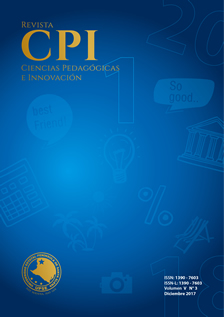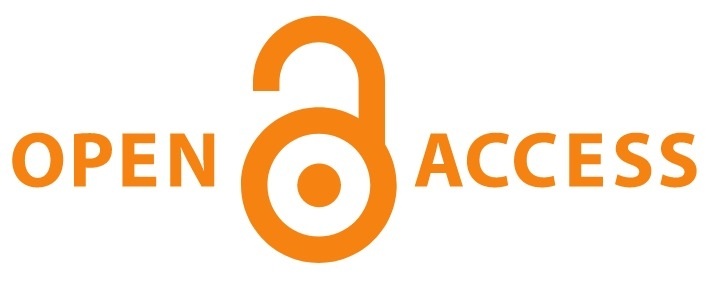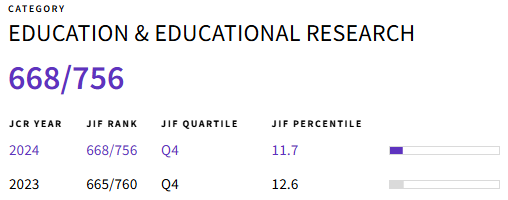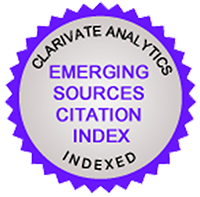Impact of science and technology in the culture of community tourism: the Salasaca case -Ecuador
DOI:
https://doi.org/10.26423/rcpi.v5i3.200Keywords:
Science, Technology, Culture, Tourism, Community.Abstract
The growing momentum of science and technology, has achieved approaches with places that man has ever imagined and sees it as a technique of vital importance for the tourism sector. In this article the analytical focus of science and technology in the culture of the Community tourism, where they worked with the Salasaca community in an in-depth study is proposed as methodological tactic. The objective, which is pursued in this work, is linked to the impact of science and technology in the culture of Community tourism. As conclusion is raises, the change in the way of promoting a place, not only by it natural but also by it scientific and technology that can contribute to the visitor. From this, a series of qualitative indicators are derived that serve to approach, from the theoretical point of view, the general understanding of science and technology in the culture of community tourism and also are useful for the evaluation of the sustainability of projects and experiences of Tourism in Communities.
Downloads
References
Delgado, C. (2005) “Hacia un nuevo saber” La Bioética en la revolución contemporánea del saber; Editorial Félix Varela, La Habana.
Nuñez, J. (1999) “La Ciencia y la Tecnología”, Problemas Sociales de la Ciencia y la Tecnología. GESOCYT; Editorial Félix Varela, La Habana.
Cutcliffe, S.H. (1990). Ciencia, Tecnología y Sociedad: un campo disciplinar, en Medina y Sanmartín (eds.) Ciencia, Tecnología y Sociedad. Estudios interdisciplinares en la universidad, en la educación y en la gestión pública. (pp. 20-41). Anthropos, Barcelona.
Agazzi, E.(1996): El bien, el mal V la ciencia. Las dimensiones éticas de la empresa científico-tecnológica.
Kröber, M. (1986): "Acerca de las relaciones entre la historia y la teoría del desarrollo de las ciencias", Revista Cubana de Ciencias Sociales, enero-abril, año IV, Nº 10, La Habana.
Fourez, G. (2000). La construcción del conocimiento científico. Madrid.
Price, D.J.S. (1980): "Ciencia y tecnología: Distinciones e interrelaciones", Estudios sobre sociología de la ciencia (Barnes, B. editor), Editorial Alianza Universidad, Madrid.
Quintanilla, M.A. (1991): Tecnología: un ensayo filosófico, EUDEBA, Buenos Aires.
CEPAL (Comisión Económica para América Latina y el Caribe) (1998a). El pacto. Fiscal. Fortalezas, debilidades y desafíos (LC/G.1997/Rev.1), Santiago de Chile. Publicación de las Naciones Unidas, N' de venta: S.98. II. G.5.Conte, M. C. Ciencia, tecnología, ingeniería e innovación para el desarrollo. 2009.
Hottois, G. (1991): El Paradigma Bioético, Anthropos, Barcelona.
Filmus D. (2000) “La escuela, garantía de futuro” Diario Clarín. Sección Educación. Sociólogo especializado en educación.
UNESCO (1999): “Declaración universal sobre la diversidad cultural: Identidad, diversidad y pluralismo” Recomendación sobre la salvaguardia de la cultura tradicional y popular, 1989.
UNESCO (1973): “Conferencia intergubernamental sobre las políticas culturales” Yogyakarta. Asia.14. FEPTCE. (2007). “Manual de Calidad para la Gestión del Turismo Comunitario en el Ecuador”. Ed. FEPTCE. Quito
Downloads
Published
Issue
Section
License
El titular de los derechos de autor de la obra, otorga derechos de uso a los lectores mediante la licencia Creative Commons Atribución-NoComercial-CompartirIgual 4.0 Internacional. Esto permite el acceso gratuito inmediato a la obra y permite a cualquier usuario leer, descargar, copiar, distribuir, imprimir, buscar o vincular a los textos completos de los artículos, rastrearlos para su indexación, pasarlos como datos al software o usarlos para cualquier otro propósito legal.
Cuando la obra es aprobada y aceptada para su publicación, los autores conservan los derechos de autor sin restricciones, cediendo únicamente los derechos de reproducción, distribución para su explotación en formato de papel, así como en cualquier otro soporte magnético, óptico y digital.

















